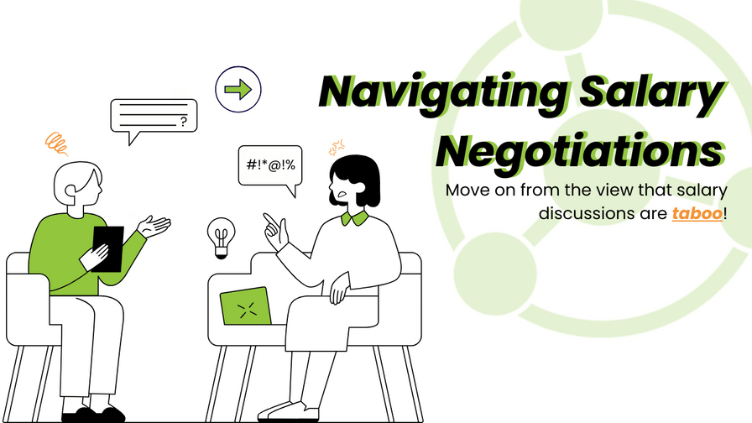
Navigating Salary Negotiations
What’s one work topic most people steer clear of? Salaries – and, more specifically, salary negotiations. It’s fascinating how different generations view this topic. Gen Z is more than happy to openly discuss their pay with friends and colleagues, whereas the older folks consider it impolite and absolutely off-limits. Competitive pay isn’t just a number; it sets the tone for a healthy work environment. Employees who are fairly compensated aren’t just motivated, they’re supercharged! If the employees are happy, the employers reap the benefits. So, how can both sides ace those salary negotiations? We break down some handy tips for both employers and candidates below.
Employer Negotiations
Whether you’re in the final round of an interview discussing compensation or sitting down with a tenured employee who feels underpaid, here are a few things to keep in mind during negotiations. Get the facts! What is the average pay for people in their position within your industry? Once you have those statistics, you can determine a pay range and make the initial offer. Here’s an example: if your range is $90,000 to $100,000, and you offer $90,000, it is much easier to negotiate a salary in the middle as opposed to letting a candidate make the first offer and negotiating down from the top end of your budget. Everyone knows there’s nothing worse than being blindsided in business, so make sure transparency starts with you! Even if you’re unable to come to an agreement, prioritizing honesty and preparedness will allow for smoother negotiations and amicable discussions.
Candidate Negotiations
Candidates, we have a few things for you to keep in mind as you approach the negotiation table. Make the employer like you! Go in with a professional demeanor and mindset so you’re able to get your point across without appearing arrogant or greedy. Negotiations can be tense, but the right attitude can turn the tables in your favor. Being likable isn’t enough, though. Make sure you come prepared with compelling reasons for why you deserve a higher salary. Where are your examples? Examples of work, statistics on competitive salaries in your industry, and other pertinent information will strengthen your case. Are they offering lower than what you’d like? Don’t throw in the towel just yet. Make sure you first consider the whole deal and understand the company’s constraints like salary caps. Lastly, don’t waste their time. Ensure them that you’re serious about the position, and you’re not just going to say “no” regardless of what they offer you.
Mutual respect, preparedness, and honesty are the top strategic factors to keep at the forefront of your mind when it comes to success in salary negotiation. It’s time to move on from the view that salary discussions are taboo! Open conversations regarding fair pay are key to operating a successful business model and show positive growth within the corporate world.



